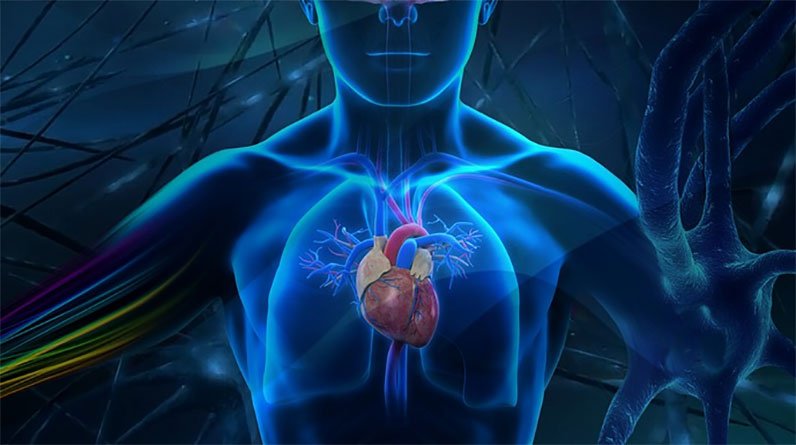
Hypothyroidism Treatment
Hypothyroidism is a condition of low thyroid hormone levels. One of the primary causes of hypothyroidism is Hashimoto’s disease, an autoimmune disorder that attacks the thyroid gland and interferes with its ability to produce hormones. Hashimoto’s disease is the most common cause of hypothyroidism in the United States and is more common in women, particularly after menopause.
Other causes of hypothyroidism include radiation therapy, certain medications, iodine deficiency, environmental exposure to toxins, and even the surgical removal of the thyroid gland.
In addition to Hashimoto’s disease, several other factors can increase the risk of developing hypothyroidism, including age, family history, and having a previous history of autoimmune disease.
Early detection and treatment of hypothyroidism are critical since the advancement of the process in hypothyroidism can be so detrimental to individual health. A simple blood test can determine the level of thyroid hormones in the body and diagnose hypothyroidism.
Symptoms and Diagnosis Of Hypothyroidism
Diagnosing hypothyroidism can sometimes be challenging. The following are the main symptomatic indicators of hypothyroidism: fatigue, lethargy, weight gain, dry skin, hair loss, cold intolerance, depression, muscle cramps, and impaired motor movement reflexes.
Though sometimes difficult to identify, several available and effective tests are used to diagnose underactive thyroid conditions accurately. These tests include a thyroid-stimulating hormone test, T4 test, free T4 test, antithyroid antibodies test, and a thyroid ultrasound.
- Thyroid-Stimulating Hormone (TSH) Test: This is the most commonly used test to diagnose hypothyroidism. It measures the blood level of TSH, a hormone produced by the pituitary gland. If the level of TSH is high, it indicates that the thyroid is not producing enough hormones and is a classical indicator of hypothyroidism.
- T4 Test: T4, also known as thyroxine, is the primary thyroid hormone. A blood test measuring the level of T4 in the blood can help determine if the thyroid is producing enough of this hormone.
- Free T4 Test: This test measures the blood level of the amount of free T4, which is the biologically active form of T4. It can provide additional information about the functioning of the thyroid and help confirm a diagnosis of hypothyroidism.
- Antithyroid Antibodies Test: This test measures the level of antibodies in the blood that attack the thyroid gland. High levels of these antibodies may indicate an autoimmune disorder such as Hashimoto’s thyroiditis and can help diagnose this condition.
- Thyroid Ultrasound: This test uses high-frequency sound waves to create images of the thyroid gland. It can help identify any physical abnormalities in the gland that can occur in the condition of hypothyroidism.
Clinicians also use other tests and diagnostic approaches to identify the presence of an underactive thyroid, including a radioactive iodine uptake test and a general thyroid scan.
Common Treatments for Hypothyroidism
Hypothyroidism is a long-term condition that requires ongoing treatment to manage and alleviate its symptoms. The goal of treatment is to restore the thyroid to optimal function, balance any hormonal imbalances, and relieve symptoms.
Your medical provider will determine the most appropriate treatment for your case based on the severity and stage of your hypothyroidism.
The following is a summarization of the most common treatments and management for hypothyroidism:
Medications and Pharmaceuticals
The most common and effective treatment for hypothyroidism is thyroid hormone replacement therapy. The most commonly prescribed thyroid hormone replacement medication is levothyroxine, a synthetic form of the thyroid hormone thyroxine. This medication is taken orally once a day, and the dose can be adjusted based on the individual’s needs.
It is important to note that thyroid hormone replacement therapy must be taken consistently and regularly in order to be effective. In addition, regular blood tests are necessary to monitor hormone levels and ensure that the correct dose is being taken.
Dietary and Lifestyle Changes
In addition, several dietary and lifestyle changes can help manage hypothyroidism and improve overall health, including an increased intake of iodine and tyrosine-rich foods.
First, iodine is an essential nutrient for thyroid hormone production. It is important for individuals with hypothyroidism to ensure that they get enough of this nutrient in their diets. Good food sources of iodine include seafood, dairy products, and iodized salt.
Similarly, tyrosine is an amino acid that helps the body produce thyroid hormones. Eating a diet that is rich in tyrosine-containing foods, such as seafood, poultry, dairy, nuts, and legumes, can be helpful in improving thyroid hormone production.
Avoid Excessive Consumption of Cruciferous Vegetables
Cruciferous vegetables are vegetables of the family of Brassicaceae, which includes broccoli, brussels sprouts, cabbage, and other greens. Avoiding excessive consumption of cruciferous vegetables is important for individuals with hypothyroidism because these vegetables contain compounds called goitrogens, which can interfere with the absorption of thyroid hormones. Goitrogens can reduce thyroid hormone production by suppressing the thyroid gland’s function.
While it is still important to include cruciferous vegetables in a healthy diet, it is best to limit their consumption when one has hypothyroidism. Some experts recommend eating no more than one serving per day of cruciferous vegetables. Additionally, cooking cruciferous vegetables can help reduce their goitrogen content and improve their safety for individuals with hypothyroidism.
It is important to remember that not all individuals with hypothyroidism need to avoid cruciferous vegetables. The impact of these vegetables on the thyroid can vary based on individual factors, such as the severity of the hypothyroidism, additional health conditions, and the overall diet.
Increase Intake of Omega-3 Fatty Acids
Increasing the intake of omega-3 fatty acids is important for individuals with hypothyroidism because these fatty acids have been shown to have a positive effect on thyroid function and overall health. Omega-3 fatty acids are a type of polyunsaturated fat that can help improve the health of the cells in the body, including those in the thyroid gland.
Omega-3 fatty acids are found in fatty fish, such as salmon, mackerel, and sardines, as well as in plant-based sources, such as flaxseeds and chia seeds.
In addition to improving thyroid function, omega-3 fatty acids have been shown to have a number of other health benefits, such as reducing inflammation, improving heart health, and supporting brain health.
Final Thoughts
Hypothyroidism is a condition impacting thyroid hormone production, leading to certain symptoms, side effects, and complications. With timely and effective treatment, however, the condition can be managed.
To ensure effective and timely treatment, effective and timely diagnosis is required. This can be accomplished through medical evaluation and appropriate testing.






